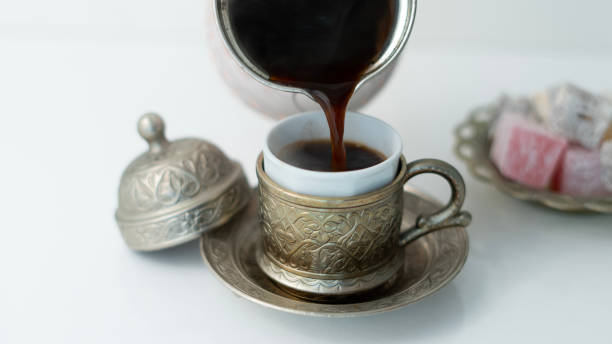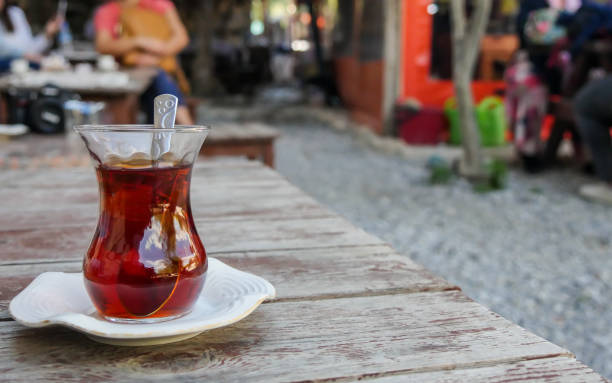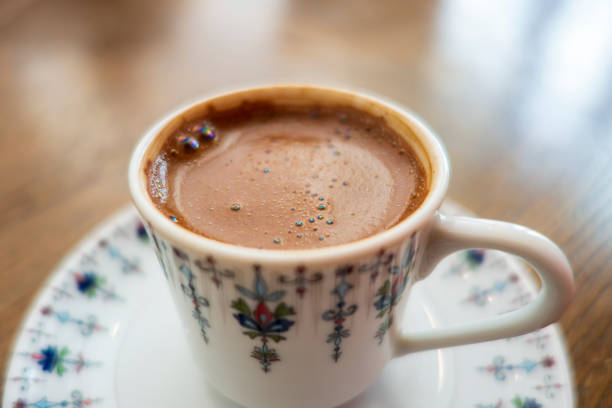Turkey’s love affair with coffee and tea is no secret—these beverages are woven into the fabric of daily life, hospitality, and tradition. From the thick, aromatic swirls of Turkish coffee to the crimson glow of freshly brewed çay (tea), each sip tells a story. In this guide, we’ll explore the rituals, history, and best-kept-secret cafés where you can experience these iconic drinks like a local.
Turkish Coffee | A Brew Steeped in History

Origins: Introduced to Istanbul in the 16th century during the Ottoman Empire, Turkish coffee quickly became a symbol of status and socialization. Its preparation method—finely ground beans simmered in a cezve (small copper pot)—earned UNESCO Intangible Cultural Heritage status in 2013.
The Ritual:
Brewing: Coffee, water, and sugar (if desired) are heated slowly until frothy.
Serving: Poured into delicate cups, always with a glass of water to cleanse the palate.
Fortune Telling: After drinking, the cup is overturned, and the grounds “read” to predict the future—a tradition called tasseography.
Pro Tip: Order your coffee by sweetness: sade (unsweetened), az şekerli (lightly sweet), orta (medium), or şekerli (sweet).
Turkish Tea (Çay) | The Heartbeat of Hospitality

Origins: While coffee ruled the Ottoman courts, tea became Turkey’s national drink in the 20th century, thanks to lush plantations along the Black Sea coast.
The Ritual:
Brewing: Uses a double teapot (çaydanlık). Strong tea from the top pot is diluted with hot water from the lower one.
Serving: Piped hot in tulip-shaped glasses, often with sugar cubes or a slice of lemon.
Social Glue: Offered freely in shops, homes, and even during business deals—refusing is considered rude!
Fun Fact: Turks drink an average of 3–5 cups daily—the highest per capita consumption in the world.
Hidden Cafés in Istanbul: Where Tradition Meets Atmosphere
Skip the tourist traps and seek out these iconic spots:
Mandabatmaz (Cihangir)
Why Go: Tucked in a Beyoğlu alley, this tiny spot serves the creamiest Turkish coffee in the city. The name humorously means “the buffalo doesn’t sink” (referring to its thick foam).
Order: A classic sade with a side of Turkish delight
Çorlulu Ali Paşa Medresesi (Grand Bazaar)
Why Go: A 300-year-old courtyard near the Grand Bazaar, where traders sip çay under vaulted ceilings.
Order: A glass of çay and a nargile (waterpipe) for the full Ottoman vibe.
Pierre Loti Hill Café (Eyüp)
Why Go: Named after a French novelist, this hilltop café offers panoramic Golden Horn views. Sip çay while watching fishermen and ferries glide by.
Karaköy Güllüoğlu (Karaköy)
Why Go: Pair your coffee with baklava at this legendary dessert institution. Their fıstıklı (pistachio) baklava is life-changing.
How to Drink Like a Local
Coffee Etiquette: Sip slowly—Turkish coffee is strong and meant to be savored.
Tea Time: Accept every refill (it’s a sign of friendship!). Hold the glass by the rim to avoid burning your fingers.
Café Culture: Many historic cafés double as hubs for backgammon (tavla) and lively debates. Join in!
Where to Buy Authentic Turkish Coffee & Tea
Kurukahveci Mehmet Efendi (Eminönü): Istanbul’s oldest coffee roaster since 1871. Buy freshly ground beans or prepackaged çay.
Ali Muhiddin Hacı Bekir (Bahçekapı): Famous for lokum (Turkish delight) to pair with your brew.
Conclusion: More Than Just a Drink
Turkish coffee and tea are not merely beverages—they’re rituals of connection, patience, and heritage. Whether you’re deciphering your coffee grounds in a dimly lit café or clinking çay glasses with new friends, these moments offer a glimpse into Turkey’s soul.

